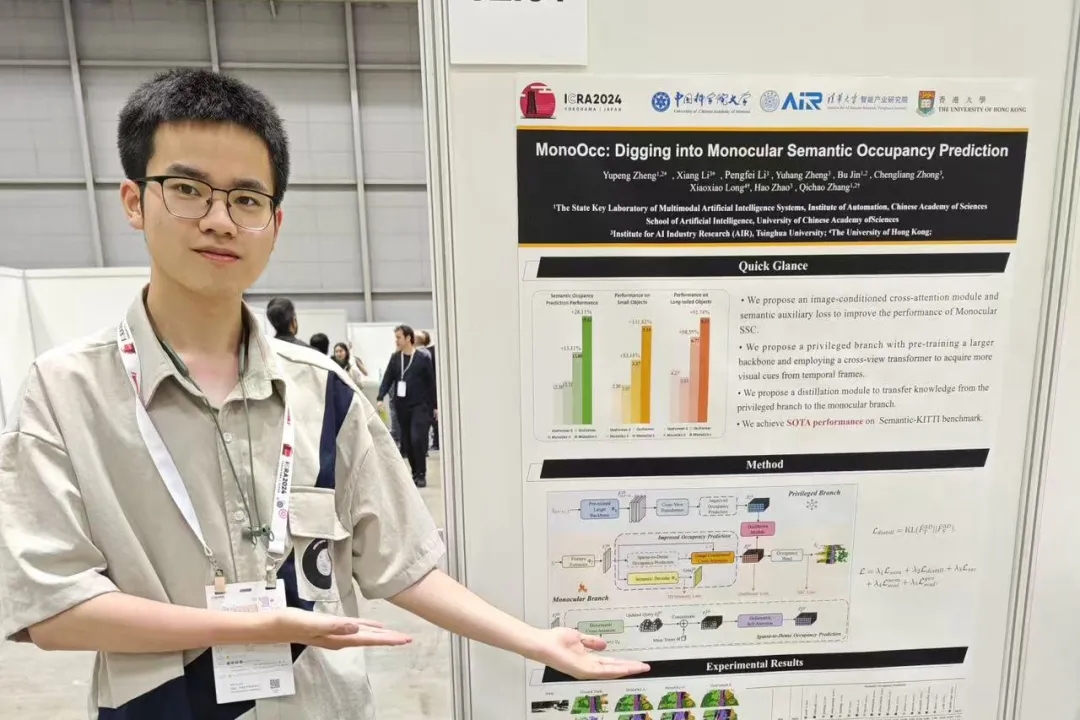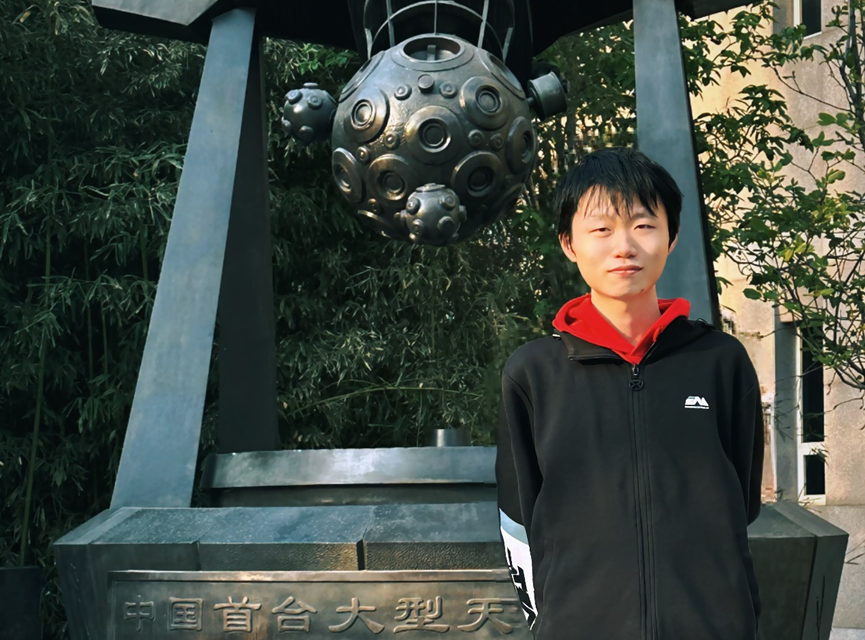Graduate

Graduate
Programs
Overview
The College of AI at Tsinghua University is committed to cutting-edge innovation research in AI and the cultivation of top-notch talents. Its goal is to achieve major innovative breakthroughs in the core foundations, underlying architecture and future computing models of AI, and to build a world-class base for gathering and training top-notch AI talents. The graduate education of the college covers four key disciplinary directions: computer science and technology, control science and engineering, electronic science and technology, and information and communication engineering, forming a training system with in-depth interdisciplinary integration.
Adhering to the concept of "teaching students in accordance with their aptitude and focusing on cultivation", the college draws on international advanced experience and innovatively implements the "PhD Supervisor Group Rotation System (Rotation)": In the first academic year of enrollment, PhD students in the college are in principle jointly guided by a supervisor group and are rotated through research groups of two or more different supervisors for a period of three to six months. The aim is to encourage students to independently explore their research interests, broaden their academic horizons through cross group research experiences, and ultimately determine their research direction and supervisor through mutual selection between students and teachers, providing PhD students with more comprehensive, diversified and personalized academic guidance and development support.
At present, the scale of graduate students in the college is steadily expanding, with 50 PhD students planned to be admitted in 2025. The college will provide students with superior research platforms and abundant academic resources to fully stimulate their potential, explore their innovative personalities, and help them grow into academic elites and industry leaders who will lead the future development of AI.

Computer Science and Technology
Doctoral Graduate Student
Training Objectives
This program aims to cultivate advanced specialized talents in the field of computer science and technology who achieve all-round development in morality, intelligence, physical fitness, aesthetic appreciation, and labor. It requires that the recipients of the doctoral degree in this major have a good grasp of the basic theories of Marxism-Leninism, Mao Zedong Thought, Deng Xiaoping Theory, the important thought of "Three Represents", the Scientific Outlook on Development, and Xi Jinping Thought on Socialism with Chinese Characteristics for a New Era, and adhere to the Four Cardinal Principles; love the motherland, abide by laws and disciplines; be honest and fair, have a rigorous academic style, and a sense of social responsibility. They should have a solid and broad foundation in the basic theories and systematic and in-depth specialized knowledge related to computer science and technology, be proficient in at least one foreign language, have the ability to independently conduct scientific research, and make creative achievements in relevant research directions. They should possess excellent comprehensive quality and become advanced specialized talents needed for the socialist modernization drive.
Training Methods
1. The training of doctoral students is implemented under the responsibility system of supervisors. If necessary, a co-supervisor may be nominated by the supervisor and appointed with the approval of the sub-committee for degrees. The co-supervisor must hold a senior-level professional title or a professional title at the associate-senior level with a doctoral degree. Members of the guidance group must hold a professional title at the associate-senior level or above, or be a lecturer with a doctoral degree.
2. When training doctoral students across first-level disciplines (or in interdisciplinary fields), a co-supervisor should be appointed from the relevant disciplines to assist in the guidance, subject to the approval of the sub-committee for degrees.
3. A standardized system for academic exchanges and academic reporting should be established, and the completion of training components should be checked on schedule.
4. Supervisors should have research projects suitable for training doctoral students and sufficient research funds. The supervisor (co-supervisor or guidance group) should regularly communicate with the doctoral student, and be concerned with the student's ideological and moral character, professional ability, and overall quality. Promote the all-round development of the doctoral student in morality, intelligence, and physical fitness.
Course Study and Credit Composition
B. Direct-PhD Students
During the pursuit of a doctoral degree, graduate students are required to earn no less than 34 degree credits, including 5 credits for required public courses, no less than 23 credits for discipline-specific requirements, and 6 credits for required components. Credits for elective courses unrelated to discipline-specific requirements and self-study courses are recorded separately.
B. Direct doctoral student
During the period of pursuing a doctoral degree, graduate students are required to obtain no less than 34 credits for the degree, including 5 public compulsory credits, no less than 23 credits required by the discipline and major, and 6 compulsory links. Credits for elective courses and self-study courses that are not related to the requirements of the discipline and major will be recorded separately.

Control Science and Engineering
Training Objectives
Doctoral Graduate Student
This discipline adheres to the principle of cultivating virtue and talent, and combines the educational concept of ""trinity"" of value shaping, ability cultivation, and knowledge imparting to cultivate various specialized talents engaged in all related aspects of control science and engineering.
Students are trained to have a solid and broad foundation in basic theories and systematic and in-depth specialized knowledge in aspects such as automatic control theory, AI, brain and cognition, pattern recognition, systems engineering, computer applications, information and signal processing, system design and simulation, navigation guidance and control, bioinformatics, systems biology, and detection technology. They should have the ability to independently conduct scientific theoretical research in related disciplines and solve engineering and technical problems, the ability to organize scientific research, technological development, and professional teaching, be familiar with the latest research results and development trends in this discipline, and be able to proficiently use a foreign language for academic paper writing and communication, becoming senior specialized talents in this discipline.
Training Methods
1. The training of doctoral students is mainly based on scientific research work, focusing on cultivating the ability of doctoral students to independently conduct academic research. Doctoral students are also required to complete a certain number of credits through course study, including interdisciplinary courses, to systematically master the theories and methods in their discipline, broaden their knowledge base, and enhance their ability to analyze and solve problems.
2. The training of doctoral students is the responsibility of the supervisor and combines the supervisor's responsibility with the collective guidance of a guidance group. For doctoral students engaged in interdisciplinary research, a guidance group composed of supervisors from relevant disciplines should be established. If necessary, a doctoral supervisor from a related discipline can be appointed as a co-supervisor.
3. After the co-supervisor is reviewed and approved by the department head, he / she should be filed with the university's degree office.
Knowledge Structure and Basic Requirements for Course Study
A. Regular PhD Students
During the pursuit of a doctoral degree, graduate students are required to earn no less than 15 degree credits, including 4 credits for required public courses, no less than 3 credits for basic theory courses, no less than 2 credits for discipline-specific courses, 1 credit for academic and professional quality courses, and 5 credits for required components.
B. Direct-PhD Students
During the pursuit of a doctoral degree, graduate students are required to earn no less than 29 degree credits, including 5 credits for required public courses, no less than 6 credits for basic theory courses, no less than 8 credits for professional foundation courses, no less than 4 credits for professional courses, 1 credit for academic and professional quality courses, and 5 credits for required components.

Electronic Science and Technology, Information and Communication Engineering
Doctoral Graduate Student
Training Objectives
Doctoral students are trained to become builders and successors of socialism who achieve all-round development in morality, intelligence, physical fitness, aesthetic appreciation, and labor. The requirements are as follows:
1. Further study and grasp the basic theories of Marxism-Leninism, Mao Zedong Thought, Deng Xiaoping Theory, the important thought of ""Three Represents"", the Scientific Outlook on Development, and Xi Jinping Thought on Socialism with Chinese Characteristics for a New Era. Adhere to the Four Cardinal Principles: love the motherland, abide by laws and disciplines; be honest and fair, have a rigorous academic style, and a sense of social responsibility.
2. Have a solid and broad foundation in the basic theories of this discipline and systematic and in-depth specialized knowledge; be proficient in at least one foreign language; have the ability to independently conduct academic research; and make creative achievements in this discipline.
3. Be physically and mentally healthy and have excellent comprehensive quality.
Training Methods
1. The training of doctoral students is implemented under the responsibility system of supervisors. It is encouraged to form a guidance group for collective guidance. When training doctoral students across disciplines or in interdisciplinary fields, joint supervisors should be appointed from the relevant disciplines.
2. Under the guidance of the supervisor, doctoral students should develop a training plan, which should be approved by the relevant department of the department. The implementation of the plan will be monitored by the relevant department of the department in accordance with the relevant regulations of the Graduate School of the university.
3. Under the guidance of the supervisor, doctoral students should study relevant courses, review literature and materials, participate in academic exchanges, determine specific topics, independently conduct scientific research, and achieve creative results.
4. Supervisors should be concerned with the ideological, academic and overall development of doctoral students.
Course Study and Credit Composition
A. Regular PhD Students
During the pursuit of a doctoral degree, graduate students are required to earn no less than 19 degree credits, including 4 credits for required public courses, no less than 8 credits for discipline-specific required courses, 1 credit for academic and professional quality courses, and 6 credits for required components.
B. Direct-PhD Students
During the pursuit of a doctoral degree, graduate students are required to earn no less than 40 degree credits, including 5 credits for required public courses, no less than 6 credits for basic theory courses, no less than 6 credits for professional foundation courses, no less than 2 credits for professional courses, 1 credit for academic and professional quality courses, no less than 10 credits for elective courses selected under the guidance of the supervisor, and 6 credits for required components.







